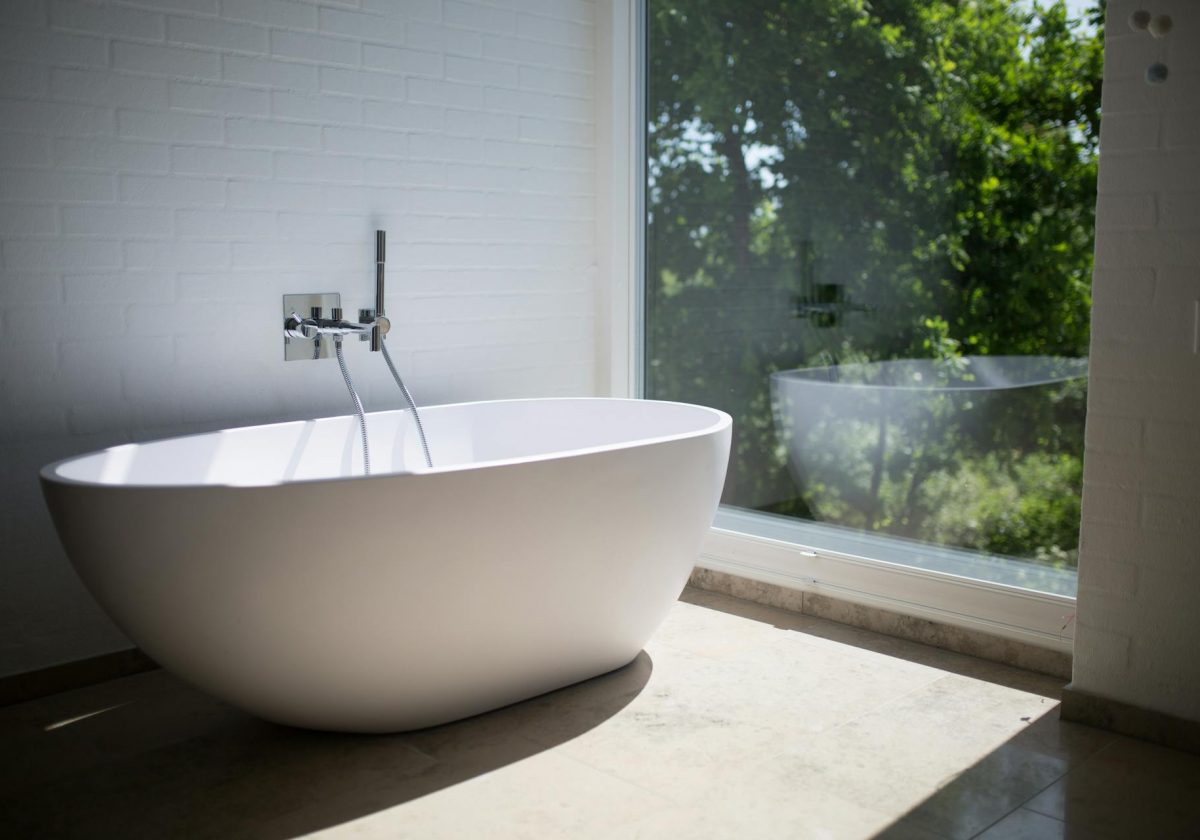Having healthy boundaries is essential to relationship success. This is true for the relationship you have with your partner, your friends, your children, your parents and anyone else with whom you are in close relationship.
Whilst boundary-less relationships work okay for a while, they bring great unhappiness and dissatisfaction in the long run and frequently are responsible for landing couples in divorce courts. So, what exactly are boundaries?
Boundaries are invisible barriers that have the purpose of protecting our identity and our reality from unwanted intrusions. Our identity is made up of our body, soul and spirit. The sum-total of this incorporates our physical appearance, our thoughts, feelings, needs, wants, rights and behaviours as well as our beliefs, values, ideals, goals, hopes and dreams.
Our reality is made up of our personal experiences and the meaning we make of them. To understand the concept of boundaries, just visualise a fence around your property. In the same way as a fence is designed to protect your home from anyone wandering in uninvited, so your boundaries are designed to protect you from people invading your personal, emotional or spiritual space.
An important question to ask yourself, ideally before you commence a love relationship, however most certainly when you experience relationship upsets is: ‘HOW HEALTHY ARE MY BOUNDARIES?’
The health of our boundaries depends on a number of things that are set in place in our childhood years and continue to be influenced by the way we manage our lives.
People with healthy boundaries:
- Have a healthy sense of self. They know what they are thinking and feeling, are conscious of their values, beliefs, rights, needs, wants, hopes and dreams and are able to take full responsibility for them.
- Have the ability to clearly and freely ask for what they need and want.
- Recognise their choices and exercise them.
People with unhealthy boundaries:
- Frequently ignore their own needs in favour of other’s needs.
- Feel anxious if they perceive they are not in control of a situation.
- Lack self-responsibility.
- They tend to believe their problems are caused by others.
As we are imperfect creatures who have been raised in imperfect circumstances in an imperfect world and are surrounded by other imperfect people, we all tend to have boundary issues of some sort. As the level of boundary damage we have experienced in our lives tends to determine our level of relationship success, how well you do in that arena will tell you how healthy your boundaries are.
If your boundaries are only dented rather than broken, full of holes rather than non-existent, too solid rather than flexible or so fluid that you only have a vague idea where you end and others begin, the steps below will help you get a better handle on the boundary issues in your life.
Improving your boundary health
Step 1 – Gain greater self-awareness
Setting boundaries is about taking ownership of what is yours. As you can only do that if you are clear on what that is, the first step to healthy boundary setting is to increase your self-awareness and discover who you really are.
Step 2 – Accept yourself
Accept yourself with all that is yours – your identity and your reality. Be aware that accepting yourself does not mean that you necessarily are happy with everything you think, feel or do. It simply means that you acknowledge where you are at.
Step 3 – Let others know who you are
Letting others know about you means sharing your thoughts with them, letting them know your values and beliefs, making them aware of what you care about, like, dislike, will and won’t do and so on. It means letting them see the REAL you.
Step 4 – Accept others
Others have as much right to their identity and their reality as you have to yours. Interfering with their right means that you are intruding on their boundaries.
Step 5 – Strengthen your ‘no’ muscle
If ‘no’ is a difficult or scary word for you, then saying NO to a partner, parent, boss, co-worker or friend can be very threatening. However, as people will only know you by the way you present yourself to them, this is a vitally important skill that needs to be learnt in order to establish healthy relationships. Remember to respect other people’s ‘no’ as much as you want them to respect yours.
Step 6 – Take responsibility for yourself
Blaming others for things that aren’t right in your world robs you of personal power and makes change impossible. Taking responsibility for what is yours (your identity and your reality) ensures that you have all the power you need to make the changes you want.
Step 7 – Make choices
Even though it may not always feel like it, you DO have choices. If you don’t like certain things about yourself, set about changing them. If you aren’t happy in your circumstances, do something about it. Stop playing the blame game and start making choices that empower YOU!
Step 8 – Choose your values
Define who you want to be and commit to working towards that goal. Shed any of the values you’ve absorbed throughout your lifetime and that no longer serve you well and choose the values that ‘fit’ you now.
Step 9 – Set goals and persevere
You can only hit a target if you’ve got one. Set realistic goals for yourself and commit to achieving them regardless of the effort they may require. If you aren’t used to goal-setting, be sure to start with small, readily achievable goals.
Step 10 – Set limits for yourself
Setting healthy boundaries is not only important in creating successful relationships with others however also in maintaining a healthy relationship with your self. Set appropriate limits for yourself to ensure you don’t fall prey to disempowering habits.
As a therapist who works with many couples I find that often they are not sure about what makes a healthy love relationship with healthy boundaries. Some couples seem to think that any kind of conflict means that their relationship is doomed, others consider power struggles, put-downs and the type of fights that leave emotional devastation in its wake as being a normal part of love relationships.
Whilst there are no ‘hard and fast rules’ and certainly no guarantees, there are quite a few signs that give you a pretty good idea about the health of your partnership.
Signs Of A Healthy Love-Relationship:
Common interests – Having a variety of interests ensures that your life is exciting, rewarding and never dull. Whilst it is not at all necessary that your partner shares each one of these interests, it is important that you have some that are common to you both.
Flexibility – The ability to compromise is a huge factor in relationships. The more flexible you are, the less likely you will be to engage in frustrating and destructive power struggles.
Acceptance of differences – A vital ingredient of a healthy relationship is the acceptance of your partner’s differences. Expecting them to think, feel and act the same as you only sets you up for continual disappointment, frustration and conflict.
Realistic expectations – Those who recognise that ALL relationships have their fair share of difficulties and that the partnership journey contains some rather bumpy stretches for everyone, will find healthy relating significantly easier than those who expect partnership to be a bed of roses.
Shared goals – Healthy relationships require some common goals. Working towards a goal that is important to both partners not only supports a couple’s commitment however serves to deepen their sense of intimacy and connectedness.
Shared decision-making – Once you have a love partner, you need to recognise that whilst it is important to retain your ‘I’ in your relationship, it is equally important to remember that you now you also have a ‘we’ to consider. Respect of your partner’s hopes, wishes and needs is vital to the nurture of the ‘we’ in a love relationship.
Common values – As your values are what defines who you are in this world, having a commonality of at least the most important ones of those with your partner gives you a much better foundation for relationship success.
Good communication – Being able to communicate effectively minimises points of friction and makes effective conflict resolution much more likely.
Despite having a much better chance at relationship success if you have the above illustrated factors in place, it is vital to remember that good relationships don’t just happen however are MADE.
This means that a good, healthy and lasting relationship requires a willingness and commitment to work at it.
So, what can YOU do? Let me share 5 do’s and don’ts with you.
Do’s:
Do ensure that you support your partner in achieving their most cherished hopes and dreams.
Do remind your partner OFTEN why you love them, what you appreciate about them, what they mean to you.
Do show your partner that you accept and love them despite their failings and frailties.
Do remember that your partner cannot read your mind. So be sure to let them know your needs and wants.
Do realise that your partner, hard as they may try, cannot fulfill every one of your needs. Take responsibility for taking care of yourself when appropriate.
Don’ts
Don’t be afraid of dealing with conflict and try your best to look at the conflict issue from both points of view – yours and your partner’s. Remember that arguments are not there to be ‘won’ however to be resolved.
Don’t make promises that have no intention of keeping.
Don’t say things unless you really mean them.
Don’t coerce, intimidate, manipulate or threaten your partner, no matter how angry or justified you may feel.
Don’t sweat the small stuff!






